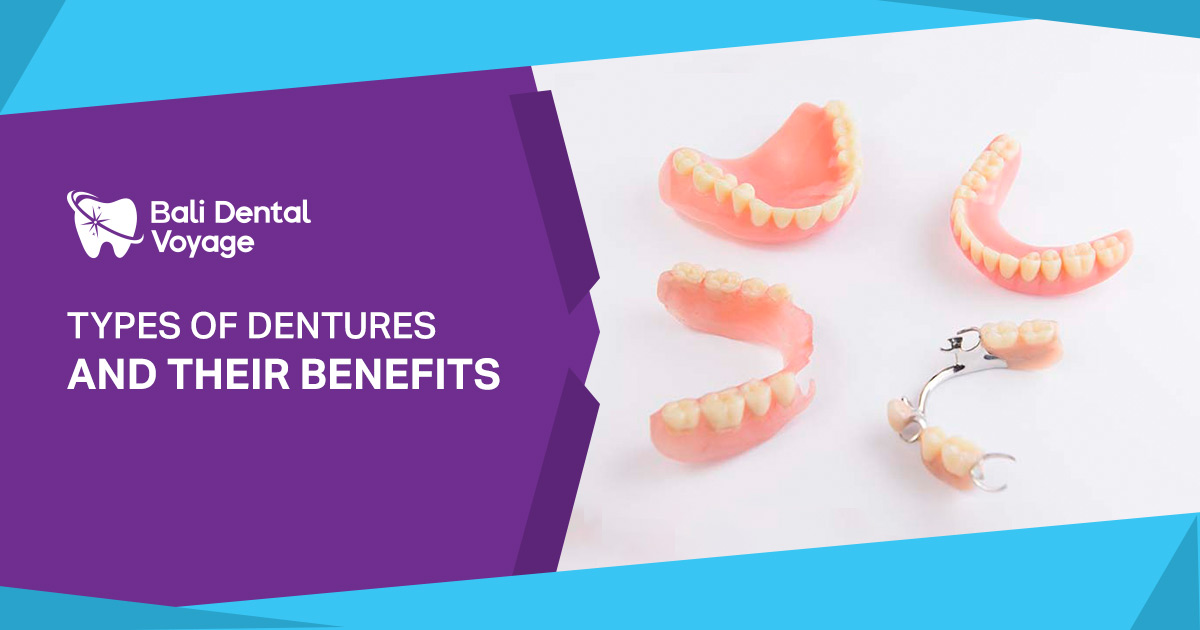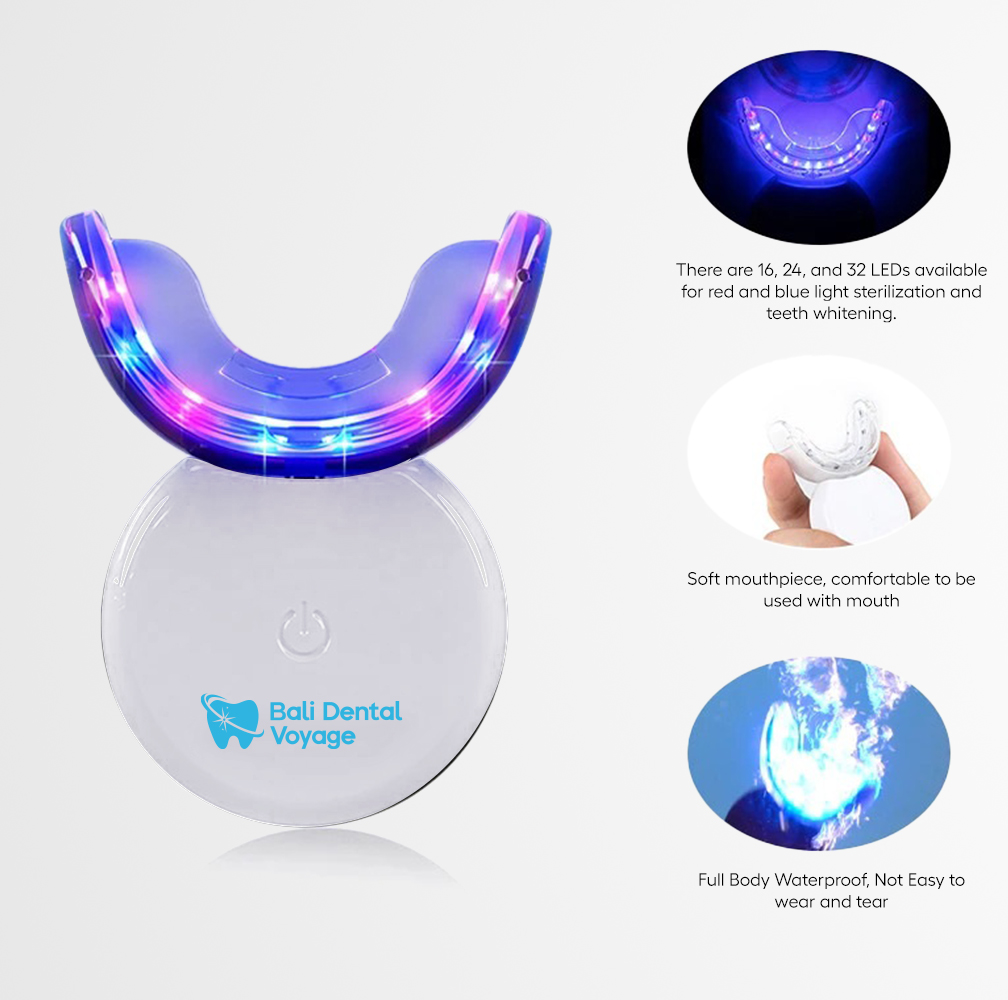
Dentures are prosthetic devices constructed to replace missing teeth and are supported by the surrounding soft and hard tissues of the oral cavity. Conventional dentures are removable, however, there are many different types and designs of dentures, including fixed and implant-supported dentures.
Table of Contents:
- What Are Dentures
- What Are Dentures Made Of
- Types of Dentures
- How to Clean Dentures
- Cost of Dentures
- How to Fix Gap Teeth Infographic
Dentures are usually made from a material called acrylate, which is a type of plastic, however, they can also be made from metals or ceramics. Dentures can be used to improve the aesthetics of a person’s smile and restore their ability to chew and speak properly.
They can also help to support the facial muscles and prevent the surrounding teeth from shifting.
What Are Dentures Made of?
Dentures are typically made of acrylic resin, a durable plastic material. In some cases, they may also be made of metal or other materials.
The base of the denture is designed to fit snugly over the gums, while the artificial teeth are positioned in a way that optimises function and esthetics. Dentures are usually removable, but there are also implant-supported options that provide a more stable fit.
Today’s dentures are far more realistic and comfortable than those of the past, and they can significantly improve the quality of life for people who have lost their natural teeth.
Types of Dentures
1. Complete Dentures
Dentures are removable appliances used to replace missing teeth. They are custom-made to fit snugly over the gums. Complete dentures are used when all of the teeth are missing.
A conventional complete denture is made after the teeth have been removed and tissues have healed, which usually takes four to six weeks. During this time, the patient will wear a temporary denture. An immediate complete denture is inserted on the same day the teeth are removed.
2. Immediate Dentures
Immediate dentures are a type of denture that is placed immediately after the natural teeth are removed. This type of denture has several benefits:
- Immediate dentures help to prevent the gum tissue from shrinking, which can occur after tooth loss.
- They allow the wearer to have a set of teeth during the healing process.
- They can be made to match the colour and shape of the natural teeth.
3. Removable Partial Dentures
These dentures consist of replacement teeth, known as pontics, attached to a metal or plastic base. The base is then connected to pink or gum-coloured plastic that helps to support the denture and blend it in with the natural teeth.
RPDs are held in place by a combination of suction, clasps that attach to existing teeth, and sometimes dental implants. RPDs are removable, meaning they can be taken out for cleaning and storage at night.
They are typically used when there are still some healthy natural teeth remaining.
4. Fixed Partial Dentures
Unlike a removable partial denture, an FPD is permanently cemented in place. An FPD typically consists of two crowns that are attached to adjacent teeth (abutment teeth) and one or more artificial teeth (pontics) in between.
An FPD can be made from a variety of different materials, including:
- Metals
- Ceramics
- Resin
Depending on the location of the missing teeth and the type of FPD being used, the pontics may be made to look like natural teeth or they may be made from a different material that is visible when you smile.
5. Implant-Retained Dentures
An implant-retained denture is a type of removable denture that is attached to dental implants. Unlike a traditional denture, which rests on the gums, an implant-retained denture is securely anchored in place.
This provides several benefits, including increased stability and comfort. In addition, implant-retained dentures are less likely to slip or click, and they help to preserve the natural shape of the face.
Implant-retained dentures are an ideal solution for patients who have lost all of their natural teeth. However, they can also be used to support a partial denture.
6. All-On-4 Implant Dentures
All-on-4 implant dentures are a type of dental prosthetic supported by implants. Unlike traditional dentures, which rely on suction to stay in place, All-On-4 implant dentures are anchored directly to the jawbone.
This provides a more secure fit and helps to prevent slippage and discomfort.
7. Economy Dentures
As the name suggests, economy dentures are a more affordable option for people who need dentures. Economy dentures are usually made of lower-quality materials and may not last as long as other types of dentures.
However, they can still be a good option for people who need to replace their teeth quickly or who cannot afford higher-priced dentures.
How to Clean Dentures
Dentures are an important part of many people’s lives, and it’s important to keep them clean. Here are some tips on how to clean your dentures:
- Rinse Your Dentures After Every Meal
This will help remove food particles and plaque. - Soak Your Dentures Overnight
This will help remove any other debris that has accumulated during the day. - Brush Your Dentures With a Soft-Bristled Toothbrush
Be sure to use toothpaste that is specifically designed for dentures. - Avoid Hot Water When Soaking or Rinsing Your Dentures
As this can cause them to warp.
By following these simple tips, you can keep your dentures clean and looking their best.
Cost of Dentures
Understanding different types of dentures and costs is crucial when considering dental solutions. Dentures restore smiles, enhance speech, and improve oral health.
Full dentures replace entire arches of missing teeth, while partial dentures fill gaps between existing teeth. If you are looking for Bali dentures, exploring your options is important.
Costs depend on factors like denture type, materials used, complexity, and patient requirements. Consult a dental professional for accurate cost estimates.
At Bali Dental Voyage, we prioritise personalised care and transparent information. Our experienced Bali dentist provides high-quality services and can assist you in finding the right denture solution for your needs.
How to Fix Gap Teeth Infographic
In conclusion, understanding the various types of dentures is crucial for individuals with gap teeth seeking effective solutions to enhance their oral health and appearance. Whether considering partial dentures to address specific gaps or full dentures for complete tooth replacement, it’s essential to consult with a dentist to determine the most suitable option.
With the right choice of dentures, those with gap teeth can achieve a confident and comfortable smile, ensuring long-term dental well-being. Contact us at Bali Dental Voyage to learn more about denture types and costs.
Our friendly staff will be happy to provide detailed information and answer any questions you may have. Don’t let missing teeth hinder your confidence and oral health.
Take the first step towards restoring your smile by contacting Bali Dental Voyage. With our expertise, you can achieve a beautiful, functional, and natural-looking set of dentures.
Contact us now for more information and to schedule a consultation.




